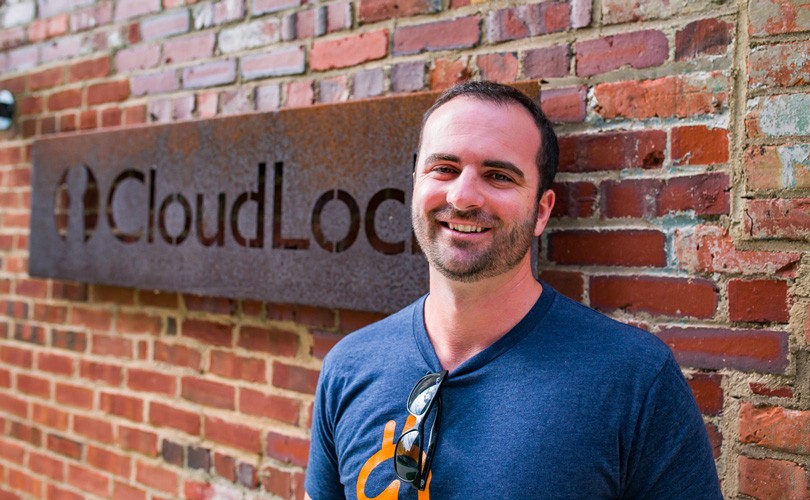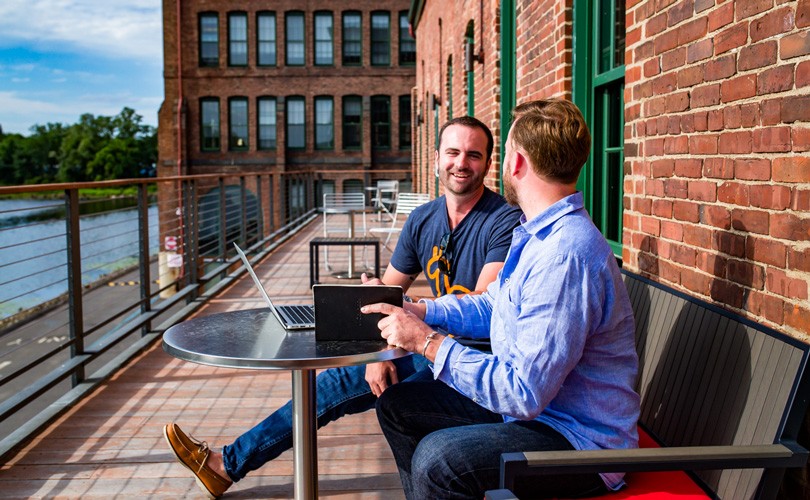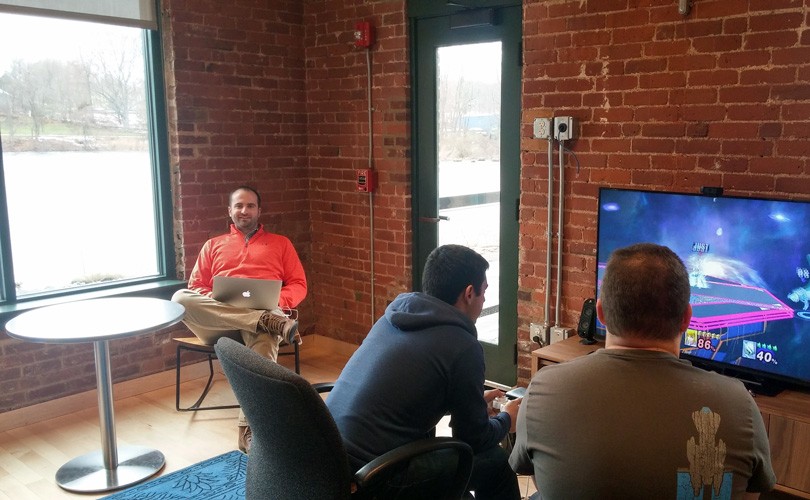Here is What the Day of a Successful Full Life Cycle Recruiter Looks Like
Full life cycle recruiters are pro hypertaskers. They handle everything from scoping to sourcing, budget to interviews, closing candidates to counter offers. And, they have a huge impact on the business.
“As I see it, I’m not just building small teams, I’m helping grow a company,” says Chris Carpenter, the sole recruiter at CloudLock. In 2015, CloudLock recruited 76 people. While it’s a frenzy to fill all these roles, he loves seeing everything from start to finish. “You get to see how you really impact hiring and how you add value to the organization.”
With everything on his plate, Chris doesn’t let the recruiting process control him - he controls the process. So, we asked him to talk about his life as a full life cycle recruiter and share how he structures his day to be more efficient and productive. And, you can use his structure to become more successful in your own day-to-day recruiting.
Chris’s day as a full life cycle recruiter
6:30 a.m. – I wake up, roll over and immediately check emails. I know, it’s not a good habit to have, but since I also recruit for roles in our UK and Tel Aviv offices, I’m totally OK answering emails early and late.
9:30 a.m. – I pull into the CloudLock office in Waltham, which is 30 minutes outside of Boston. The first thing I do at my desk is check email, looking for urgent stuff right away – cancellations of an interview, questions about an offer, responses for hard-to-fill roles, etc. Then, I make sure the interviews for the day are all set and the hiring managers are prepped. We usually have 1 or 2 onsite interviews a day.
10:00 a.m. – Every week, I do a stand up meeting with every hiring manager. We first address any pending decisions and evaluate current openings. Then, we discuss upcoming interviews, current talent flows, and make tweaks to our process. In between these weeklies, I schedule quick daily check-ins and status updates.
After working at several small to mid-sized companies, I think strong relationships with hiring managers are absolutely crucial to success. As you grow, there are so many new hiring managers that you want to make sure that they are well trained. They need to know how to conduct the best interview, represent our company, and give candidates a great experience.
11:00 a.m. – My on-site interview arrives, so I greet her in the lobby. It’s important to establish that relationship we’ve built over email and on the phone, so I always try to meet with the candidate when they interview onsite. If I can’t meet them, it’s awesome to know I can rely on Jess, my HR Director, or other colleagues to help me out. After a quick office tour, I take her to the conference room to meet with her first interview of the day. The hiring manager is already there. Nice!
11:30 a.m. – I meet with Jess (our HR Director) daily. Since our team is small (it’s just the two of us), we chat regularly to ensure we’re always on the same page. We discuss everything from new hire orientation, to sales roles she’s helping me fill, to offer letters that need to be developed. We’re also talking more about employee retention and hiring for culture fit.
12:00 p.m. – Hop on the phone for my first candidate phone screen. I usually do 4 or 5 a day. I’m starving and want lunch, but it’s the best time for the candidate and I try to be as flexible as I can. I want them to have as little stress as possible.
1:30 p.m. – After lunch, I decide to sit with the engineers while I catch up on emails. I’m hiring for 5 engineering roles right now, so it’s great to catch up with them and get a few referrals. I take another phone screen for a QA Engineer.
2:00 p.m. – I usually block out time in the afternoon to source. I open up LinkedIn Recruiter and search for candidates. I have 15 reqs to fill right now, but I start searching for two director level positions. Senior roles like these are fun to work on, however, they take more time.
3:30 p.m. – Grab some more coffee before I knock out my to-do list. I also dedicate time for things that I don’t want to do. Well, not that I don’t want to do them, but they are things that have to get done and take time, like writing job descriptions and closing candidates. Rejecting candidates is tough. These people went through the hiring process and want to work at our company and it just didn’t work out for one reason or another. It’s emotional. I always schedule a phone conversation with them. It’s a difficult conversation that is necessary, and I want to be respectful of their time and efforts. Ultimately, it’s the right thing to do.
4:45 p.m. – One of my hiring managers extended an offer to a sales candidate. Awesome! I immediately send the candidate an email telling him congrats, and then follow-up with a celebratory phone call. I like this approach because it allows the hiring manager to give out the good news, and gives me the open door for questions and negotiations.
5:00 p.m. – Another quick phone screen for an operations role.
6:30 p.m. – Before I leave the office, I make sure that I’ve given feedback to everyone that I need to. Whether that’s a phone screen or onsite interview, feedback is an important touch point in the candidate experience so candidates know where they stand.
Next time you’re piled with reqs or feeling overwhelmed, take note from Chris’ time management habits. Structuring your day into chunks, scheduling daily check-ins with your manager, or finishing your to-dos before you end the day are just a few ways you can be more productive and successful everyday.
To receive blog posts like this one straight in your inbox, subscribe to the blog newsletter.
Topics: Small business
Related articles








